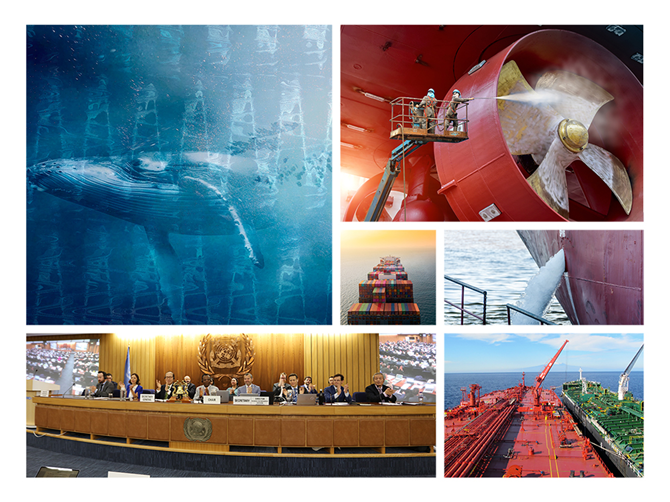
The 80th session of the Marine Environment Protection Committee (MEPC) adopted the 2023 IMO Strategy on Reduction of GHG Emissions from Ships, with more stringent targets to tackle harmful emissions. It includes an enhanced common ambition to reach net-zero GHG emissions from international shipping close to 2050, a commitment to ensure an uptake of alternative zero and near-zero GHG fuels by 2030, as well as indicative check-points for 2030 and 2040.
Read full details here.
Several other matters were discussed by the Committee during their week-long meeting at IMO Headquarters (3-7 July).
The MEPC adopted revised Guidelines for the control and management of ships' biofouling to minimize the transfer of invasive aquatic species. Invasive aquatic species are recognized as a serious threat to the marine ecology of the planet. Biofouling is the accumulation of aquatic organisms on wetted or immersed surfaces such as ships and other offshore structures. Good biofouling management can help protect marine biodiversity by preventing the transfer of invasive species to new marine areas. Keeping a ship's hull clean can also reduce the ship's greenhouse gas emissions by improving fuel efficiency.
The 2023 Guidelines expand on and update the 2011 version, with a view to strengthening them and increasing their uptake.
The MEPC discussed several matters relating to the implementation of the Ballast Water Management Convention (BWM Convention). The Committee approved the Convention Review Plan (CRP) under the experience building phase associated with the BWM Convention. The plan will guide a comprehensive review of the Convention over the next three years and the corresponding development of a package of amendments to it.
Additionally, the Committee adopted a number of MEPC resolutions on Amendments to guidelines on managing ballast water, for instance on record-keeping.
Revised Guidelines for the reduction of underwater noise from commercial shipping were approved. The guidelines recognize that commercial shipping is one of the main contributors to underwater radiated noise (URN) which has adverse effects on critical life functions for a wide range of marine life.
The MEPC approved the dissemination of an MEPC circular on Guidelines for underwater radiated noise reduction in Inuit Nunaat and the Arctic which recognize the unique environment of Inuit Nunaat and the potentially significantly increased adverse impacts from shipping noise to marine wildlife in this area.
MEPC 80 agreed to designate an area in the North-Western Mediterranean Sea as a Particularly Sensitive Sea Area (NW Med PSSA). The designation will protect cetaceans from international shipping through associated protective measures (APMs). These are recommendatory in nature and intended to be applied by any commercial ships and pleasure yachts from 300 gross tonnage and upwards.
The Committee discussed a document on the increase in ship-to-ship transfers at sea and the potential pollution risks they bring, along with associated liability and compensation issues. A draft Assembly resolution on the matter was forwarded to the 33rd session of the Assembly (which meets 27 November to 6 December 2023), together with comments and views expressed at MEPC 80, for further consideration, with a view to finalization and adoption by the Assembly.
A full summary of the MEPC's 80th session is available here.
Source: IMO
FROM: www.xindemarinenews.com

